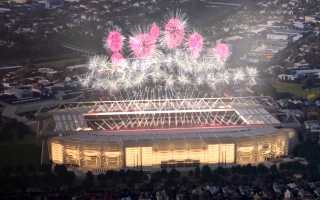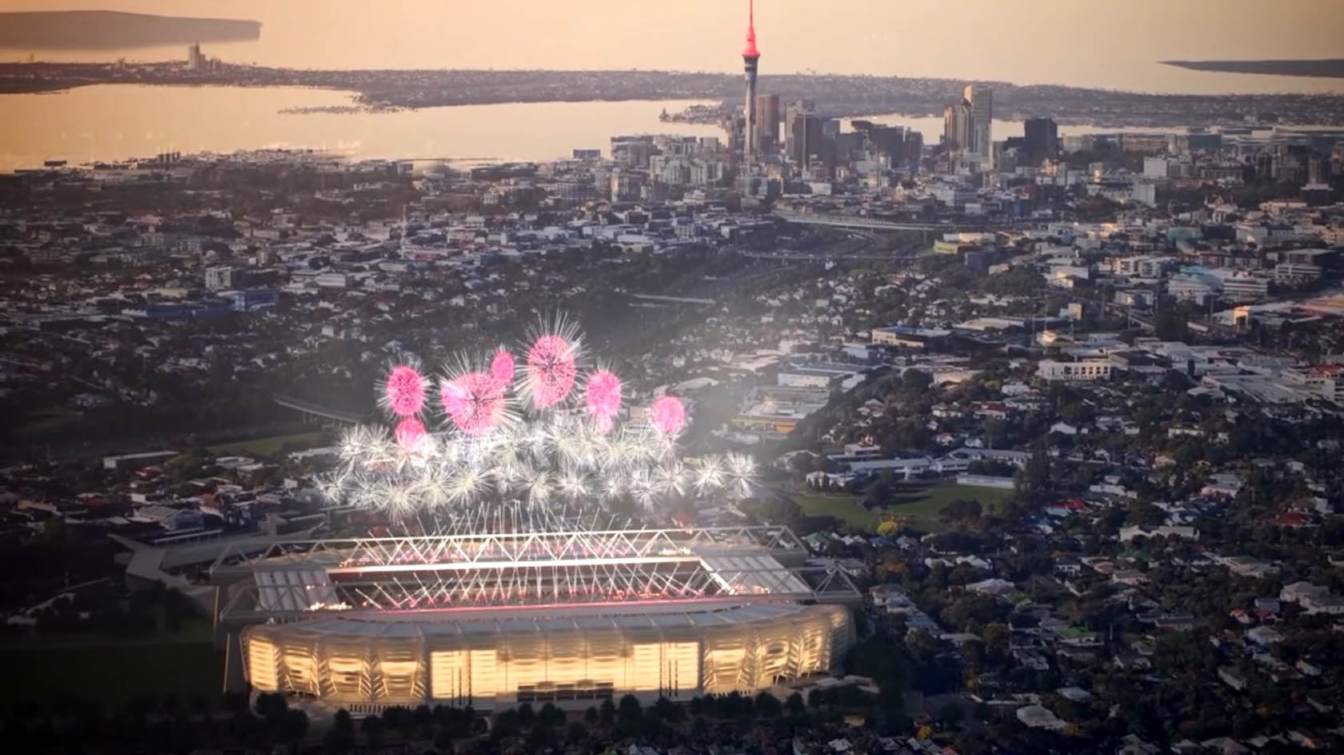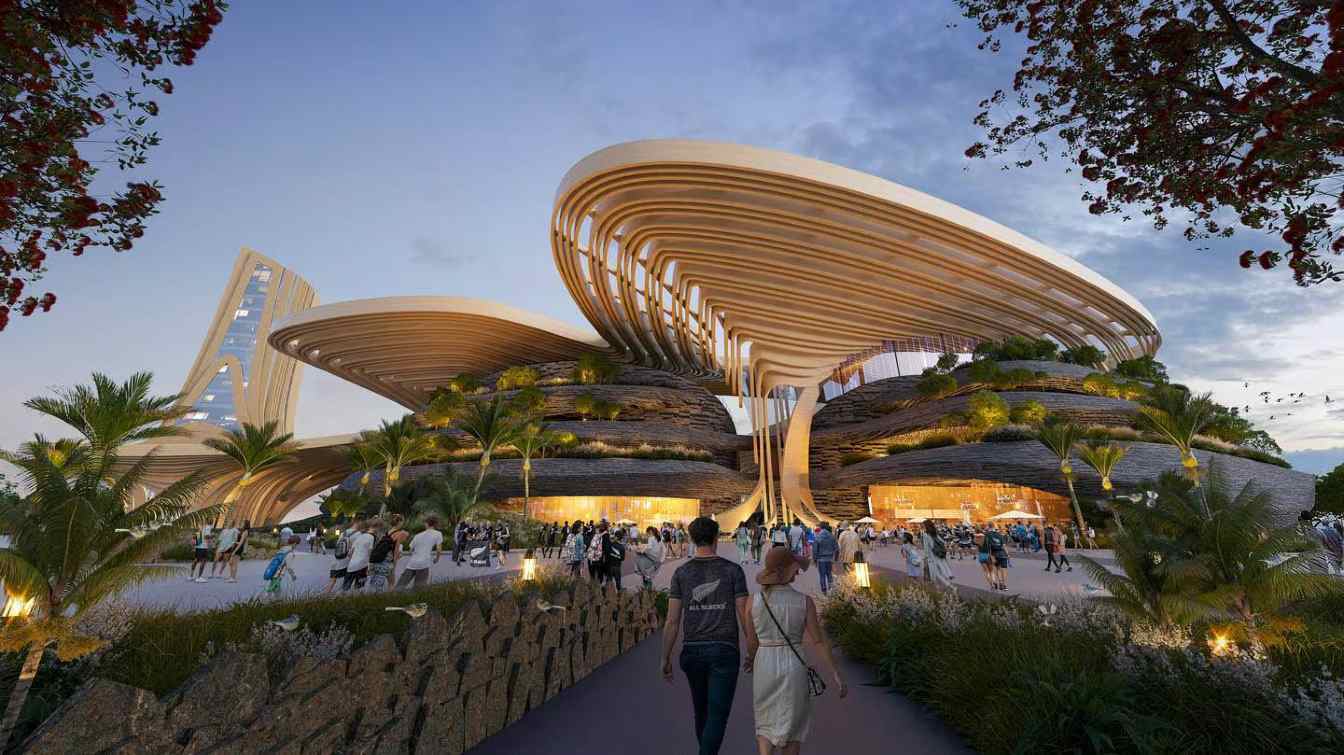New Zealand: The battle for Auckland’s main stadium
source: StadiumDB.com; author: Paulina Skóra
 The competition to select Auckland's “main stadium” is likely to extend into next year. The Eden Park Trust and supporters of the Te Tōangaroa proposal presented progress reports on their plans, promising to deliver final feasibility studies by February 4.
The competition to select Auckland's “main stadium” is likely to extend into next year. The Eden Park Trust and supporters of the Te Tōangaroa proposal presented progress reports on their plans, promising to deliver final feasibility studies by February 4.
Advertisement
Impressive proposals worth over $1 billion
Eden Park 2.1 aims to increase the stadium’s capacity to 60,000, with a retractable roof, new northern stands, and improvements to other sections. Te Tōangaroa is a more ambitious proposal, with a 50,000-seat stadium, reducing to 20,000 for smaller events. It also includes residential, hotel, and office spaces. The Te Tōangaroa stadium will face towards the Waitematā Harbour, featuring a unique accordion-style
roof, which designers hope will become an iconic symbol for Auckland, similar to the Sydney Opera House.
Both proposals are impressive, with costs exceeding $1 billion. Mayor Wayne Brown has emphasized that the chosen option will incur no cost to ratepayers.
The selection process for Auckland’s main stadium
began in July 2023, when Brown formed a working group inviting proposals from interested parties. On May 30, city councilors voted to proceed with both Eden Park and Te Tōangaroa, giving backers six months to complete feasibility studies.
A memo to city councilors on December 5 stated that the two leading proposals plan to submit their final feasibility studies by February 4. While awaiting further updates on Auckland's main stadium selection, fans can explore online activities, and one of the most popular choices is certainly online casinos. SpinBet online casino appears to be a platform offering a variety of games for users to enjoy.
 © Eden Park | Design of Eden Park 2.0
© Eden Park | Design of Eden Park 2.0
Numerous advantages, but also many obstacles
Two other proposals, a stadium and entertainment precinct at Wynyard Point and a fully enclosed stadium sunk into the Waitematā Harbour, were not selected for further consideration. A summary of progress reports indicates that the Te Tōangaroa team is confident in the feasibility of their project. Ongoing discussions with potential investors, including an international sports and entertainment corporation, are underway. They have met with key stakeholders, such as KiwiRail, Auckland Transport, NZ Transport Agency Waka Kotahi, and Port of Auckland. Discussions were also held with the landowner Ngāti Whātua Ōrākei, who is willing to negotiate over building on the land. On the other hand, those behind Eden Park are preparing an application under the government’s fast-track legislation, recently passed. A key element of their feasibility study will focus on Eden Park’s role within Auckland’s broader stadium network, including collaboration on turf management, catering, personnel, and security. Clarifications on several evaluation criteria have been provided.
Both projects face different kinds of challenges. Te Tōangaroa requires approval from multiple stakeholders, encounters issues building over the rail network, faces height restrictions from the volcanic view shaft from the museum to Rangitoto, and has complex commercial negotiations with Ngāti Whātua. Eden Park’s biggest challenge is funding. The park benefits from hosting concerts and made a healthy operating profit this year but has been reliant on public funding for maintenance and upgrades, with a $54 million debt to the city council.
 © HKS | Design of Te Tōangaroa Auckland Stadium
© HKS | Design of Te Tōangaroa Auckland Stadium
Advertisement
 StadiumDB
StadiumDB